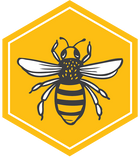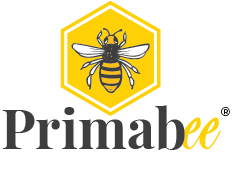What's The Difference Between CBD, Hemp, Delta-8 THC, and Delta-9 THC?

Hemp products have taken the wellness market by storm, and there are more options to choose from than ever before. Hearing so many unfamiliar terms may sound intimidating to novice consumers who might get confused at first. If you are unsure how CBD, hemp, delta-8 THC, and delta-9 THC differ and what effects they produce, you are certainly not alone. It's never too late to try good things, so here is everything you need to know about hemp and its derivatives.
What is Hemp?
Let's start with the foundation – hemp. Hemp is a cannabis plant used for various purposes, such as making fabrics, paper, and rope, and has been around for centuries. Its first use can be traced back to as early as 10,000 BC in Northern China.
Hemp has been around in traditional medicine and industrial purposes for a long time, so why is it gaining popularity only now? Unfortunately, hemp production was banned in the United States in 1937 after the Marihuana Tax Act was passed. Back then, science couldn't differentiate between two different types of cannabis plants – hemp and marijuana. It was impossible until scientists identified two primary cannabinoids in the cannabis plant – CBD and THC.
As it turns out, the ratio of these two compounds in cannabis strains defines whether they belong to hemp or marijuana. Hemp is a cannabis plant with less than .3 % THC, while marijuana has high THC amounts. But what do these abbreviations mean after all?
What is CBD?
It's safe to say that the abbreviation CBD is even more popular than its parent plant, hemp. CBD stands for cannabidiol and is one of the two most abundant cannabinoids in the cannabis plant. Cannabinoids are a class of naturally occurring compounds enriching cannabis plants with unique properties.
Since the legalization of hemp derivatives in 2018, CBD has become a wellness hit, and now it's available in various product types, such as oral tinctures, softgels, edibles, topicals, skincare, etc.
Because of such interest in CBD, numerous studies have explored CBD's effects on human bodies.
Preclinical and clinical studies indicate CBD's therapeutic properties. These include neuroprotective, antioxidant, anti-inflammatory, and more. A review of possible side effects in consumers found that CBD causes no side effects when consumed up to 1500 mg/day. To have an idea of how large of a dose it is, each CBD gummy usually contains 10 mg of CBD. You'd have to consume more than 150 Primabee CBD gummies to exceed that dose.
What is Delta-9 THC?
Delta-9 THC is another abundant cannabinoid in cannabis plants, specifically in marijuana. THC is what gives marijuana its psychoactive properties, and unlike CBD, it is not federally legal. Hemp-derived products, including CBD, contain minuscular THC amounts – less than .3% or no THC at all, like Primabee Lo2NoTHC* CBD products.
THC, unlike CBD, is psychoactive and can impair consumers and cause various side effects. Still, it's widespread in today's medicine. It is successfully used for pain management and treatment in patients undergoing cancer chemotherapy and stimulating appetite in patients with wasting syndrome because of AIDS.
What is Delta-8 THC?
As the name suggests, delta-8 THC is very similar to delta-9 THC with a slight difference in molecular structure – it has a double bond on the 8th carbon atom in its molecular structure, while delta-9 has one on the 9th carbon. This slight difference causes a significantly less intense psychoactive effect, thus resulting in much milder highs and fewer side effects.
In a study comparing the effects of delta-8 THC with its more potent sibling delta-9 THC, participants reported that the outcomes of delta-8-THC were less intense and had a shorter duration.
Today's oversaturated hemp market offers delta-8 THC derived from hemp, promising a less potent high and some benefits of the hemp plant. Nonetheless, delta-8 THC doesn't reach high doses in any cannabis strain, so manufacturers must first extract CBD from hemp and convert it to delta-8 THC molecules using isomerization.
Because federal law addresses the limit of delta-9 THC in hemp products, these delta-8 products available on today's market fall into the legal category. They are hemp-derived and contain no more than .3% of delta-9 THC, but It's a loop in current law, so some states have already criminalized delta-8 through local laws.
In Conclusion:
Hemp is a non-psychoactive cannabis plant that has been legal for purchase and consumption since the passing of the 2018 Farm Bill. CBD is the most abundant and famous cannabinoid in hemp; it is now part of millions of consumers' daily routines. CBD's sibling cannabinoids, delta 8-THC and delta 9-THC cause psychoactive experiences – the latter is more potent, while delta-8 THC is milder. Even though delta-8 THC derived from hemp through the conversion of CBD molecules into delta-8 THC is widely available, some states have already criminalized delta-8 THC, so it's best to check local laws before consumption.





Leave a comment